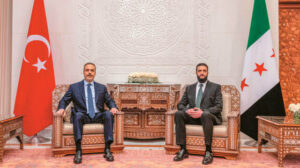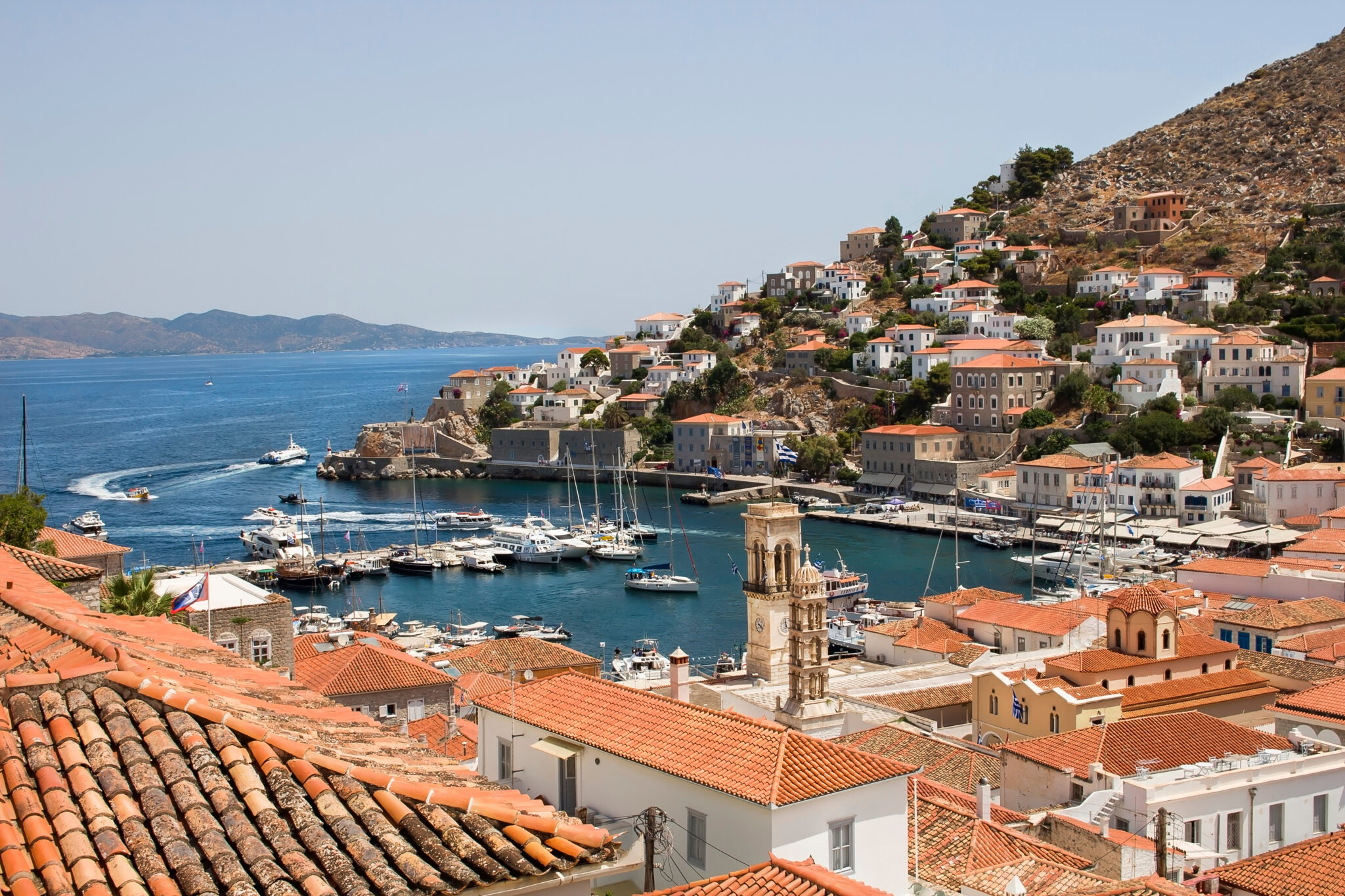Time moves at a different pace in Syria since early December when Assad’s “Empire of Silence” – ironic as it may be – collapsed with a deafening noise. Nearly three weeks after the country and its power were seized by the jihadist HTS, the focus has shifted more to political and diplomatic developments and less to the battles that still rage, particularly in the northern and eastern provinces.
With a brief but revealing glimpse of the intentions of interim president Ahmad al-Saraa (Abu Mohammad al-Jolani) and his appointed government, it is evident that the main player in Syria today is not its long-suffering people, who for 53 years endured torture chambers, mass executions, unmarked and unknown graves, and mass displacement. Instead, the spotlight falls on Recep Tayyip Erdogan and Turkey.
“Turkish-Style” Infrastructure
In the past seven days, Turkey announced its plan to finance several critical Syrian infrastructure projects. The first involves reconnecting Damascus to Turkey’s southern borders via railway lines. Turkey also pledged to address Syria’s nearly destroyed power grid, especially in the north and east. Reports indicate that in Damascus, alongside numerous Turkish intelligence agents, there are also dozens of executives from Turkish companies and public entities.
Negotiations are expected to intensify, and it’s nearly certain that Turkey will funnel significant funds into Syria, both directly and indirectly. Amid the broader announcements of Turkish investments framed as “a helping hand to our neighbor in need on Christmas Eve,” a leaked map surfaced. This leak coincided with Turkish Transport Minister Abdulkadir Uraloğlu’s statement clarifying ongoing discussions between Turkey and Syria about defining an Exclusive Economic Zone (EEZ) in the Eastern Mediterranean.
Although the map—predictably featuring the illegal 2019 Turkish-Libyan memorandum—appeared rudimentary, Erdogan’s actions are far from improvised. Turkey’s operations in Syria are calculated, with Ankara demanding solid guarantees—not merely economic ones—for its investments. While Erdogan may be regarded in the West as an Islamist or seen by others as consumed by grandiose ambitions, those familiar with him know that his overriding goal is his personal and political legacy.
From this perspective, Ankara’s moves today could carry far-reaching significance for the Middle East beyond what is being subtly leaked. Erdogan’s Turkey will not emerge a loser from the Syrian crisis. However, the West and other concerned parties should pay close attention to how Ankara flaunts its approach. While the EEZ isn’t on the transitional Syrian government’s immediate agenda, which is preoccupied with far more urgent survival issues, Ankara has, within 15 days, positioned itself as a voice for Damascus on issues far beyond foreign policy.
Risks of War
Turkey’s sweeping moves in Syria have faced little serious opposition from the West. Europe has limited itself to promises of humanitarian aid. The U.S. has quietly removed its $10 million bounty on interim president al-Saraa, in place since 2016, and the UN urges, “Give the new leadership the benefit of the doubt.” Israel, however, stands as the sole counterbalance to Turkey’s increasing dominance.
For a week now, the Israeli military has controlled the entire southern border area with Syria, conducting aerial strikes on Assad’s air defense systems and weapon depots. With its forces on high alert, the Israeli military awaits political orders for its next move.

Strategic Positions of Israel
From a military standpoint, Israel’s current positions are highly advantageous. Israeli forces, including fighter jets and Merkava tanks, can target Damascus or any other location from their bases with minimal delay. For Israel, Turkey’s actions in Syria are crucial not only due to Ankara’s regional influence but also because of the instability spreading in Iraq, with factions like ISIS cells resurfacing, albeit cautiously. Israel is keen to dismantle what it sees as the “axis of evil” for decades to come.
The Israeli Army Solidifies Its Position Along Syria’s Southern Borders
Iran, now more isolated than ever, is on shaky ground domestically and increasingly hints at nearing nuclear weapon capabilities. Netanyahu faces a dual military dilemma: strike at the heart of Tehran’s nuclear program or confront Turkey in Syrian territory. Based on Israel’s actions since October 2023, the answer is clear: both.
Netanyahu reportedly has military plans for both Tehran and Syria. What remains unknown is the timeline for their implementation. However, Israel’s actions in Syria suggest preparations are in motion for both operations. With Ankara and Tel Aviv on a direct collision course in Syria, 2025 promises to be an even more challenging year, especially at its outset, than the one concluding now—a year already marked as one of the most conflict-ridden since World War II.
Syria’s Deadlock
Syria’s transitional government has made multiple overtures to the West. Al-Saraa has given numerous interviews to Western media, renounced his extremist past, dropped his long-associated surname, and seeks to rebuild his country with himself at the helm.
Faced with problems far outweighing solutions, Al-Saraa appears to be grasping at any available opportunity. His long-standing ties with Turkey stem from his defection from Al-Qaeda, orchestrated by Ankara’s intelligence chief Hakan Fidan. While this relationship carries historical weight, it also risks anchoring Syria to a precarious future.
No perfect solutions exist, and Syria’s leadership deficit in diplomacy complicates matters further. Sharing even a Foreign Ministry, likely among other institutions, with Turkey creates scenarios that could plunge the country back into crisis. By March, Al-Saraa must convince almost everyone of his intentions and strategies for Syria’s reconstruction. If his approach remains overly reliant on Turkey, significant opposition is inevitable.
In the short term, Al-Saraa’s goals appear achievable, but the agreements he forges with Ankara today may shape a future he cannot foresee, further binding the Syrian people to powers they have opposed for at least the past 15 years. The Kurds, stuck between two poor options, are unlikely to yield as long as U.S. support remains steady.
Ask me anything
Explore related questions





